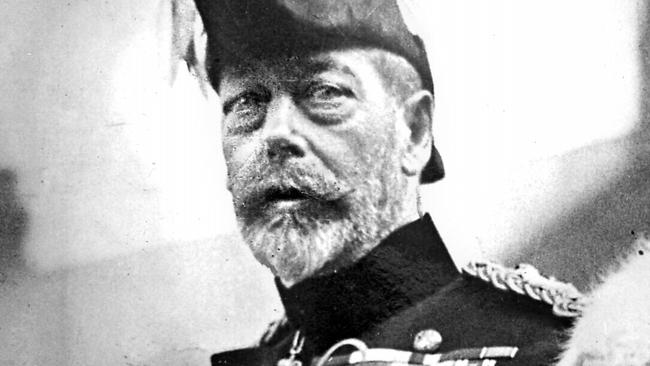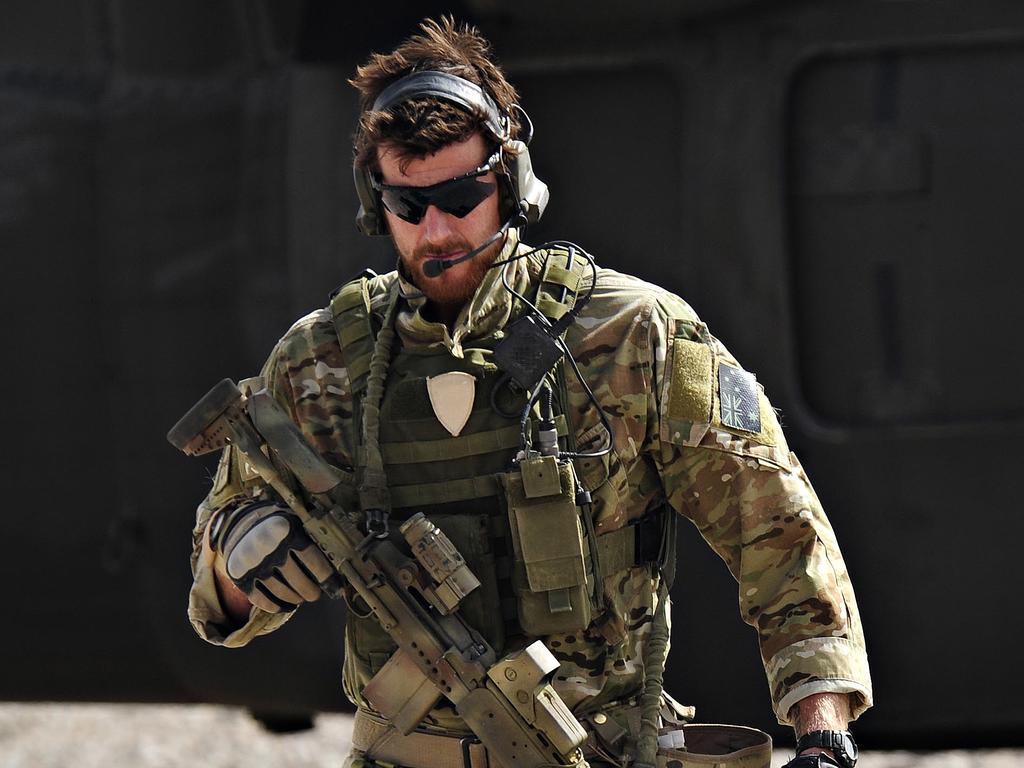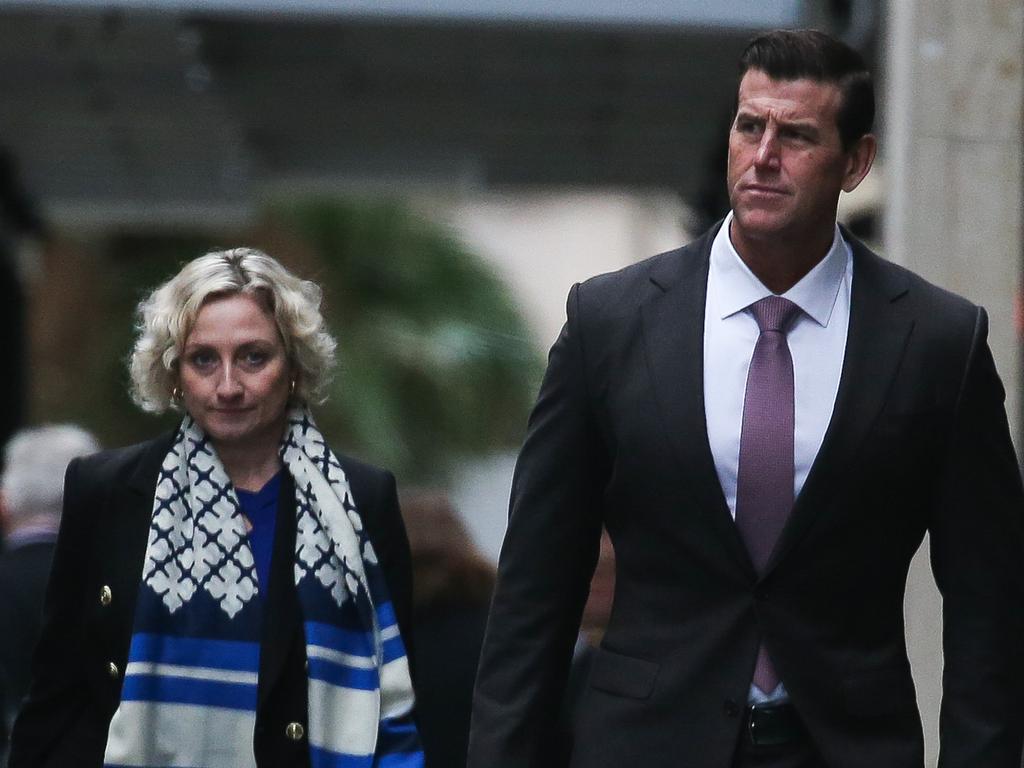
Those issues have wide-ranging ramifications, most obviously for the leadership of the ADF. And the outcome may also have broader implications for the law of defamation.
It is, in particular, simplistic to view the verdict as protecting investigative journalism; the decision’s emphasis on the extremely high evidentiary bar seriously damaging allegations must clear if they are to escape legal liability confirms (for better or worse) just how wary the media needs to be when it advances damning contentions – a point that may weigh on the ABC’s prospects in the case brought by Bruce Lehrmann.
But important as those issues are, they have been overshadowed by the controversy about the fate of Roberts-Smith’s Victoria Cross.
At the heart of that controversy is the question of exactly what the award recognises. Viewed in historical perspective, the answer to that question is straightforward: the Victoria Cross honours a great deed, rather than the character of the person who accomplished it.
The Cross hails as exemplary not the actor but the act – an act of such valour, said Queen Victoria (who created the award on January 26, 1856), as to make one “tremble with emotion”.
The emphasis on acts of heroism reflected the spirit of the Victorian era. Contemporaries considered 19th-century Britain prosaic, materialistic and utilitarian; but precisely because those features were so widely deplored, they provoked an intense reaction.
Its most influential expression was in Thomas Carlyle’s masterpiece, On Heroes, Hero-Worship and the Heroic in History, delivered as a series of lectures in May 1840.
Consciously seeking to rehabilitate heroism, Carlyle railed against thinkers such as David Hume, Jean-Jacques Rousseau and Jeremy Bentham, who regarded great deeds and great men as manifestations of aristocratic unreason. On the contrary, Carlyle argued, extraordinary deeds were “flowing light-fountains” that pierced the darkness of everyday banality and self-interest; only the light they cast made it possible to “enter deeply into the secret of Mankind’s ways in this world”.
But while that conviction captured the Victorian imagination, the whole idea of heroism was reshaped in its rehabilitation. No longer was it considered the province of the noble or even of the virtuous; every person – and, more importantly, every soldier – could accomplish deeds of enormous merit.
Napoleon III had recognised that possibility through the Médaille Militaire, which he established in 1852. Four years later, the Victoria Cross was, as The Times said in celebrating its creation, the first British “order for merit and valour open without regard to rank or title”.
Welcoming the end of “the old spirit of exclusiveness”, The Times greeted an age in which “private soldiers may look forward to wearing a distinction which kings might be proud to have earned the right to bear”.
Changes in warfare made that egalitarianism particularly crucial. In On War (1832), great Prussian military theorist Carl von Clausewitz stressed the role of the will to fight in modern warfare, most notably in close combat, “where every man is on his own”.
Now, with the British Army waging endless “small wars” in remote deserts, mountains and jungles, the overriding challenge was, in Major General JFC Fuller’s colourful phrase, to transform soldiers from the “troupe of performing dogs” characteristic of 18th-century drill formations into a bloodthirsty “pack of hounds, each straining to further the hunt of battle”.
It was that context that shaped Rudyard Kipling’s poems – “When you’re wounded and left on Afghanistan’s plains, And the women come out to carve up your remains …”; and it was the deeds accomplished in the empire’s distant outposts that framed the award’s image as crowning individual acts of valour.
The emphasis on the heroic quality of the act, and not the moral calibre of the actor, became even more pronounced once the world had experienced the horrors of total war.
Never was that more apparent than in 1920, when the issue was raised with King George V of the circumstances in which the award could be revoked.
“The king feels strongly,” reported his private secretary, Lord Stamfordham, “that even were a VC to be sentenced to be hanged for murder, he should be allowed to wear his VC on the scaffold” because it was the exemplary character of the deed that mattered – and once the deed was done, not even having committed the worst crimes could erase its memory.
There were, however, undeniable counter-pressures. In effect, the 19th century did not only see a renewed emphasis on acts of heroism; it also saw a profound change in the regulation of warfare.
Inspired partly by humanitarianism, partly by revulsion at the growing carnage of combat and partly by the (utopian) belief that rationally constructed laws could resolve the world’s problems, a series of international conferences established increasingly stringent rules of warfare, beginning with the Saint Petersburg Declaration of 1868.
Ignored all too often in inter-state conflict, entirely disregarded by insurgents, those rules sought to moralise an activity in which soldiers were, at the same time, being asked to risk their lives so as to intimidate, subdue and defeat a murderous adversary – and would be rewarded for extreme bravery in doing so.
Inevitably, the result was a persistent tension between the laws of war, the pressures of the battlefield and the quest for glory.
And more recently, those tensions have been exacerbated by the tendency – starkly visible in #MeToo – to confound the actor and the act, as if only virtuous individuals could accomplish, and merit recognition for, worthy deeds.
It is, of course, hard to think of an idea more alien to Carlyle’s mind. In a period that placed ancient Greece on a pedestal, he well knew the Greek heroes could scarcely be described as good men: they were no less vicious and capricious than the immortal gods – but being mortal, they could only gain eternity through undying fame, unleashing a competitive race for distinction that acknowledged no bounds and respected no limits.
Most of all, however, he knew the Greeks doubted whether Athena – the goddess of rationally conducted, disciplined warfare – could ever tame Ares, the “bloodthirsty marauder” (as Homer called him), who invariably prevailed in the heat of battle, propelling Achilles’ murderous instincts, Ajax’s rage and the savage outbursts of Ulysses.
In the end, war remains – as Thucydides, a hard man who had experienced it first-hand, wrote – the cruellest of teachers: and what it teaches is cruelty. Centuries later, as Australians grapple with a world in conflict, the dilemmas that truth poses are as acute as ever.








While the ultimate consequences of the verdict in the defamation proceedings launched by Ben Roberts-Smith remain uncertain, the case clearly raises issues that will be debated for years to come.